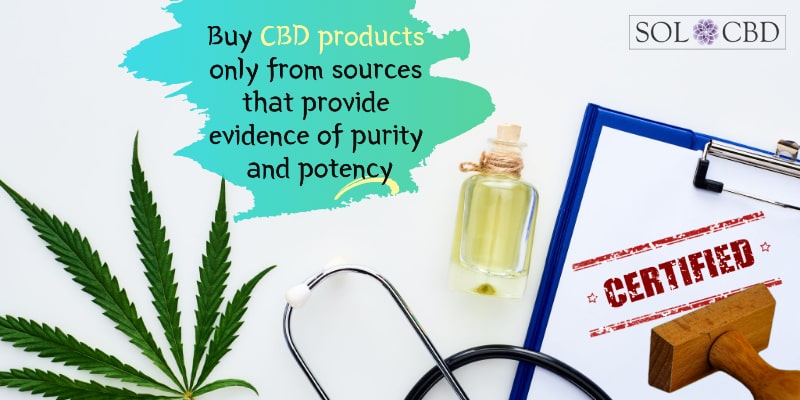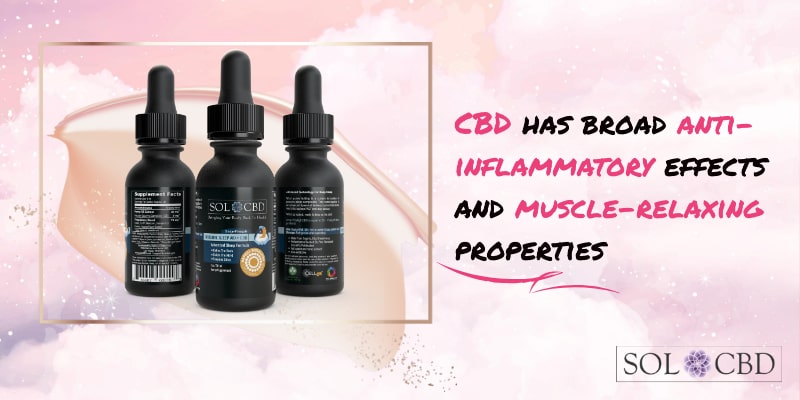During these crazy times, you may have discovered just how much of an impact illness can have on our society. Understanding the effects of CBD on the flu and common cold is a powerful tool to improve the way you handle these illnesses. In the following article, you’ll discover all the facts you need to know about how CBD oil impacts the cold and flu.
Table of Contents
1. Exploring the Common Cold and Flu
1.1 Adding Cannabidiol (CBD) to the Conversation
1.2 The Flu (Influenza Virus)
1.3 The Common Cold (Rhinovirus)
1.4 How to Protect Yourself and Others
1.5 Tips for Feeling Better
2. Can CBD Prevent the Common Cold or Flu?
2.1 What about COVID-19?
2.2 What CBD Will Not Do
2.3 How CBD Helps Manage Symptoms of the Flu
3. How to Pick the Right CBD Product Type
3.1 How to Avoid Contaminated CBD Products
4. Final Thoughts on CBD, the Common Cold, and the Flu
LISTEN TO THE BLOG POST HERE:
1. Exploring the Common Cold and Flu
The common cold and influenza virus seasons have become standard parts of life each year, constituting an annual epidemic. Sadly, they cause many deaths, loss of productivity, and suffering to citizens.
The average rate of Americans who get sick from the flu (they have symptoms) each year is 8%. If we include asymptomatic cases, roughly 5% to 20% of Americans get sick from the flu every year. [1]
The common cold is even more common than the flu and is recognized as a primary reason children miss school and adults cannot work. There are millions of cases each year, with American adults averaging 2–3 colds per year. [2]

RELATED: How CBD Helps Prevent Inflammation and Allergies
1.1 Adding Cannabidiol (CBD) to the Conversation
Many Americans consume CBD to help maintain their health. This may lead many to have questions about the effects of CBD on these illnesses. We’ll explore what cannabidiol (CBD) can and cannot do for you regarding the flu and common cold. You’ll discover the symptoms that CBD may help alleviate and the limitations of this non-medicine.
Here’s the deal:
If you are considering buying CBD to help promote and maintain health, you’ll find this article to be the perfect resource for you. We’ll also discuss the importance of avoiding contaminated CBD products and explore some general tips to help you recover from the flu or common cold.
First, you’ll discover the key facts behind the flu and common cold that you need to know. Once we are all on the same page around these viruses and the illness they produce, we’ll add CBD to the conversation. You’ll discover how to pick the right CBD product type for you and your needs when ill.

RELATED: Is CBD Safe for All Ages?
1.2 The Flu (Influenza Virus)
Let’s get started by learning the key facts of the influenza virus, which causes the flu. There are two primary types of influenza viruses that routinely spread in humans: Types A and B. Combined, these viruses are responsible for our annual flu seasons. [3]
The influenza virus produces a contagious respiratory illness. Specifically, this virus infects the throat, nose, and possibly the lungs, leading to mild to severe illness. Sadly, it can even lead to death. Further complications caused by the flu include bacterial pneumonia, sinus and ear infections, and the worsening of chronic medical conditions. [1]
The best prevention method that currently exists for the influenza virus is the flu vaccine. Moreover, there are influenza antiviral drugs that may be used to treat the flu. Compared to the common cold, the flu comes on more suddenly. Symptoms of the flu vary dramatically. You may feel some of all of the following: [1]
- Cough and sore throat
- Runny or stuffy nose
- Headaches and fatigue
- Fever
- Vomiting and diarrhea (more common in children than adults)

Now that we understand the flu, we will take some time to discuss the common cold. It is valuable to understand the differences between the two, although there are plenty of similarities around the treatment and management of these viral diseases.
1.3 The Common Cold (Rhinovirus)
The scientific name for the virus that causes the common cold is the rhinovirus. Although the cold is most common in the winter and spring, this illness can occur any time of the year. The symptoms of the common cold include:
- Runny nose
- Sore throat
- Sneezing and coughing
- Headaches and body aches
Recovery generally occurs within 7–10 days. Unfortunately, vulnerable individuals may develop bronchitis or pneumonia after falling ill from the common cold. Striving to avoid this negative progression is essential for ensuring that proper recovery occurs. In the following section, we’ll take a step back and discuss how you can protect yourself and others from getting these illnesses in the first place. [2]

1.4 How to Protect Yourself and Others
The advice for protecting yourself and others is basically the exact behaviors that we have heard repeatedly since the start of the current pandemic. We have gained a much better appreciation for the value of a face mask. One can only speculate on how the flu and cold rates would change if people wore masks when experiencing symptoms.
While we wait to see whether masks will become a more regular occurrence during the cold and flu seasons, what else should we be doing? Here are the essential and critical actions you should take: [1] [2]
- Wash your hands often, for at least 20 seconds, with soap and warm water
- Avoid touching your eyes, nose, and mouth with an unwashed hand
- Cover coughs and sneezes
- Stay away from people who are sick
- Stay home if you are sick

Even with these precautions, catching these illnesses can happen far too often. While we should practice as many preventative measures as possible when illness occurs, we should also be ready. On that topic, we will discuss some general tips for feeling better and promoting a speedy recovery.
1.5 Tips for Feeling Better
When it comes to the cold and flu, often, waiting it out seems like all we can do. While there is some truth to this, as the viruses run their course, that does not mean we are powerless. There are numerous actions we can take to ensure that we provide the best healing environment possible.
Here are some general health tips to help you feel better while sick:
- Get adequate sleep. Try to get at least eight hours, and more if you are able. Don’t feel bad about taking a nap while ill. Your body needs additional rest.
- Eat wisely. Junk food and other pro-inflammatory foods can weaken you further and enhance negative symptoms of the cold and flu. People should strive to eat healthy food and eat as much of it as they can.
- Disinfect frequently. This action helps ensure others around you are at a lower risk of catching your illness. If you have the energy, you should use it to disinfect your living space and the things you touch most often.
- Reduce stress. While this is easier said than done, individuals should attempt to reduce the stress they are exposed to. This includes postponing deadlines and pushing meetings back a week or two.
- Don’t be afraid to ask for help. We all need help sometimes. It can feel lonely and isolating when we are ill, but do not let that fool you. There are people in your life willing to help, so don’t be afraid to ask.
We know that many readers are waiting patiently to determine whether CBD can actually prevent or remedy the cold or flu. Well, wait no more! It is time to explore these essential questions and provide all the answers you want and need.

WATCH: Advanced Sleep Formula with CBD
2. Can CBD Prevent the Common Cold or Flu?
CBD has been shown to have potential effectiveness against viral diseases, such as hepatitis C and Kaposi sarcoma. While there is plenty of anecdotal evidence to be found, there is a serious lack of clinical evidence at this time. [4]
Researchers have not found any evidence of a direct antiviral effect for CBD. While CBD has been demonstrated to reduce neural inflammation in multiple sclerosis cases, it is unknown whether this occurs while suffering from the cold or flu. Overall, there is plenty of research needed before suggesting that CBD is a treatment option for viral diseases. [4]
You might want to know:
The reason CBD may one day be considered a treatment option during illnesses such as these is based on the role of the endocannabinoid system (ECS). The ECS has been shown to impact the control and elimination of infectious agents. This includes bacteria, viruses, protozoa, and even fungi. [5]
We do know that CBD has broad anti-inflammatory effects and muscle-relaxing properties. But there has not yet been any clinical research performed to assess the use of CBD while sick from the cold or flu. That said, CBD may help alleviate symptoms like a sore throat, stuffy nose, and muscle aches and pains. [6]
2.1 What about COVID-19?
When it comes to the coronavirus, research is needed to explore the potential effects of CBD. The virus behind the COVID-19 crisis is labeled SARS-CoV2. One group of researchers suggested that it is “feasible” that CBD may reduce lung inflammation and impact disease severity. The anti-inflammatory effects of CBD are indicated as the reason CBD might be helpful for those with COVID-19. [7] (Click to tweet)

RELATED: COVID's Latest Enemy: CBD and Its Fight Against Lung Damage
2.2 What CBD Will Not Do
Put simply, CBD is not a medicine. As we have learned, it cannot be called an antiviral medicine with any level of clinical evidence. CBD cannot definitively prevent or treat the viruses that cause both the common cold and the flu.
While CBD has plenty of benefits, preventing or fighting viruses do not currently fall on this list. Consumers should exercise caution when others make grandiose claims around the benefits of CBD against the cold, flu, and COVID-19.
Now:
That said, there are beneficial CBD effects that appear highly relevant to the symptoms of these illnesses. We’ll explore some of the known benefits of CBD in the next section.

RELATED: The 7 CBD Oil Uses and Benefits That Are Most Popular
2.3 How CBD Helps Manage Symptoms of the Flu
Individuals have long suspected that CBD may help shorten the duration of a viral illness. Currently, there have been zero clinical studies investigating this potential effect. Based on what we know of the effects of CBD, it is logical to guess that CBD may at least help provide symptomatic relief.
For those suffering from moderate or severe illness from the cold or flu, the goal of symptomatic relief often becomes the primary goal. For this reason, many Americans have tried using CBD when ill. While we do not have empirical evidence, anecdotal reports suggest numerous benefits from taking CBD while sick. (Click to tweet)
CBD has been broadly known to help reduce the following symptoms:
- Headaches
- Muscle aches
- Lack of sleep
- Nausea

RELATED: Here's Why CBD Is Inflammation’s Worst Enemy
Want to know the best part?
Astute readers may notice the overlap between the symptoms of the cold and flu and these effects. Individuals who are suffering these symptoms may alleviate the intensity of these effects by consuming CBD. (Click to tweet)
Getting sick can also produce negative impacts on our mental well-being. Often, we are also pushed into isolation while ill, which only adds to the negative social consequences. Based on this, the theory that CBD can help improve overall mental well-being becomes very relevant. Consumers may notice that taking CBD alleviates some of the mental suffering that occurs while sick from influenza and the rhinovirus. (Click to tweet)
Now that we understand the limitations and positive effects of consuming CBD, you likely have a critical question. You are probably wondering how to pick the right CBD product type for when you are sick. We’ll explore this topic in the following section.

3. How to Pick the Right CBD Product Type
When sick with the flu or common cold, smoking and vaping are not advisable. Due to the effects on the lungs and the potential to develop pneumonia, smoking should be avoided as much as possible.
CBD oils provide a smoke-free way to get your CBD dosage without aggravating your lungs at all. Based on everything we have learned so far, you can see why avoiding any agitation to your throat and lungs is the intelligent and advisable thing to do. (Click to tweet)
When it comes to getting your daily dose of CBD, there are plenty of non-smoked options for you. We provide a variety of CBD oils, CBD tinctures, and CBD capsules. You may benefit from our Advanced Sleep Formula with CBD if suffering from sleeping issues.
The final factor that consumers should consider before buying any CBD product is contamination. While ill, we are extra vulnerable to potential threats, and contaminants in CBD products can fall under this category. In the following section, we’ll explore the best thing you can do to ensure that your CBD product is free of contaminants. Our solution also helps to ensure purity and potency meet consumer expectations.
RELATED: How to Take CBD Oil
3.1 How to Avoid Contaminated CBD Products
When it comes to CBD, we want to be sure that these products are pure and free from contaminants, especially when we are sick. The presence of impurities can lead to more stress on your body while it is already fighting to get healthy.
For these reasons, consumers should only buy CBD products from sources that provide evidence of purity and potency. You may have seen these laboratory results presented from any reputable dealer of CBD products. The results of these tests are collectively referred to as a Certificate of Analysis (COA). (Click to tweet)
If you do not see a COA listed on any CBD product page, you should avoid these products. Buying from reputable CBD providers is essential to guarantee you get the potency and purity that you expect. You can easily find a COA provided for each of our CBD products.

RELATED: How to Ensure the CBD Oil You're Using Is Pure
4. Final Thoughts on CBD, the Common Cold, and the Flu
As we have discovered, CBD is not a preventative medicine or an antiviral treatment. We can say that CBD has been shown to produce health benefits that may improve symptoms and boost recovery for ill people. Specifically, this includes the anti-inflammatory effects of CBD and how these may encourage lung healing and disease progression prevention.
All of us should exercise the preventative measures discussed, such as handwashing and avoiding touching our eyes or mouths. When illness does occur, we should practice the health activities expressed here to encourage a solid recovery. Positive actions include getting proper sleep, eating healthy food, and reducing stress.
But here’s the kicker:
We also discovered that smoking is a bad idea while sick from the flu or cold. You learned that CBD oils are a far better option to select to attain that daily CBD dosage. (Click to tweet) Furthermore, we expanded on the benefits of buying CBD from producers that provide laboratory reports, called a COA.

RELATED: CBD Dosage for Inflammation: What You Need to Know
What’s the bottom line?
In summary, CBD is not a cure or preventative agent against the cold or flu. That said, there are several important benefits from consuming CBD oil that may help those who are ill. Your health is important to us, and that is why we only offer the highest-quality CBD products that are free from contaminants.
Sources:
- https://www.cdc.gov/flu/about/keyfacts.htm
- https://www.cdc.gov/features/rhinoviruses/index.html
- https://www.cdc.gov/flu/about/viruses/index.htm
- https://www.liebertpub.com/doi/full/10.1089/can.2019.0060
- https://www.karger.com/Article/Fulltext/481824
- https://www.healthline.com/health/cold-flu/smoking-weed-with-a-cold#cbd
- https://www.ncbi.nlm.nih.gov/pmc/articles/PMC7187842/































